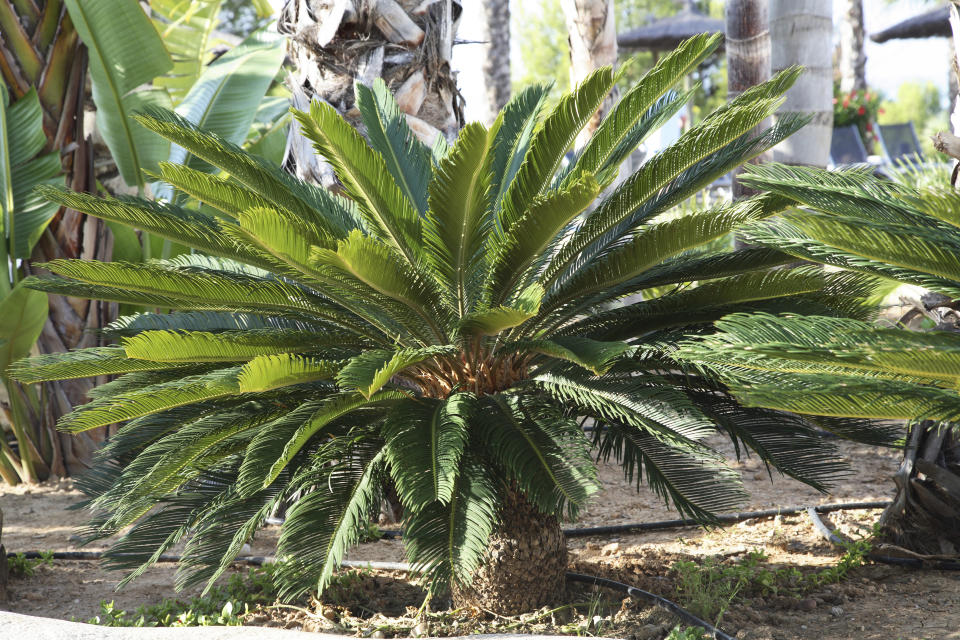A Plant You Probably Have In Your Yard Could Poison Your Dog

If you lack a green thumb, you may own a hardy Sago Palm or two-but if you also own a dog or cat, listen up: Sago Palms can be fatal when consumed by animals, a fact that not all pet owners are aware of. In fact, it's the most reported call to Animal Poison Control in South Carolina, according to ABC News.

Just one bite can be deadly. "Many pet owners don't know that these can actually be toxic to their dogs and cats," Dr. Tina Wismer, the medical director of the American Society for the Prevention of Cruelty to Animal's Animal Poison Control Center revealed to ABC News. "One or two seeds is enough to kill a dog, or even a child."
While all parts of the plant are toxic to dogs, according to the Pet Poison Hotline, it's the seeds that pose the greatest danger to your pet. If you own a Sago Palm and notice your pet experiencing vomiting, diarrhea, and lethargy, followed by central nervous system problems like seizures or tremors, then you need to call your veterinarian immediately. Sadly, even with speedy and aggressive treatment, the survival rate is only 50 percent.
And while the Sago Palm's severe level of toxicity isn't news-vets have known this for quite some time-the plant has been put in the spotlight recently because it's being used in yards and homes more often.
"Now you can actually go to your local store or nursery and buy Sago Palms as little potted houseplants," Dr. Wismer told ABC News. "Many pet owners don't know that these can actually be toxic to their dogs and cats."
They're an especially well-liked landscaping option in Southern states because they thrive in warm climates, require minimal maintenance, and they're affordable, WFAA News reports.

In the past 10 years, the plant has poisoned 1,400 dogs, according to the ASPCA. And here's what may be the scariest news: Retailers are not required to label plants or notify consumers that the palms are toxic when consumed.
In order to protect your pet, you should ensure the palms aren't in your yard or home, and if they are-remove them. And to safeguard your pet in the long run, you should inquire about the toxicity of plants, flowers, or shrubs when purchasing. If you think your pet has eaten the palm, you can call your vet or the ASPCA Animal Poison Control Center at 1-888-426-4435.
(h/t ABC News)

